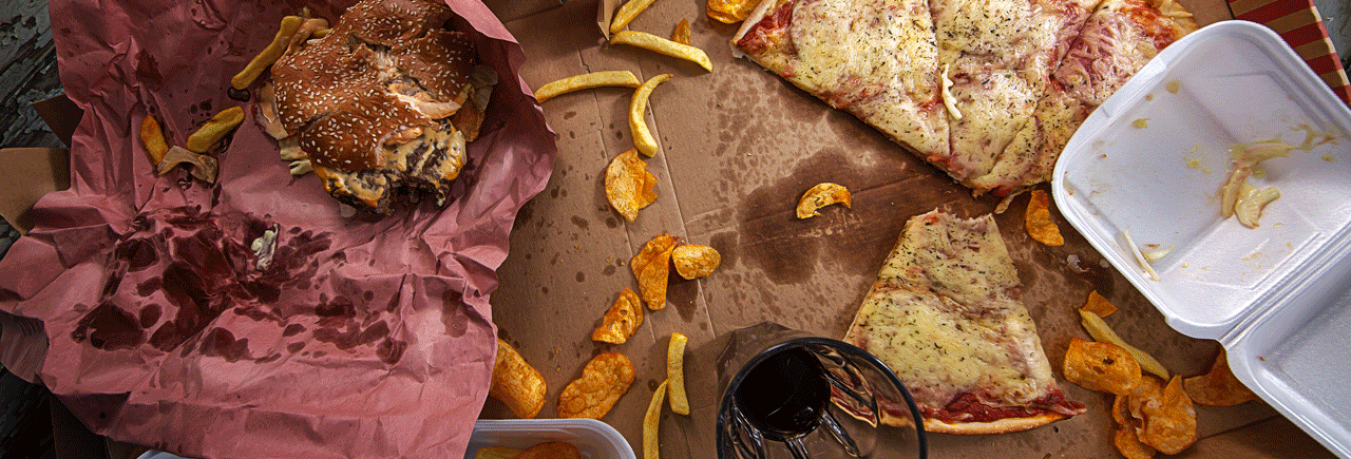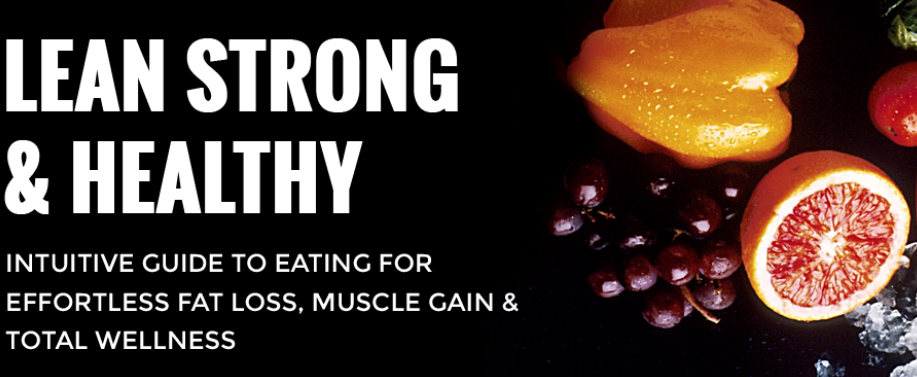
Why We Engage in Unhealthy Habits
Dec 4, 2017 mindpumpWith the dawn of the Age of Social Media, we are constantly inundated with images and information about health, and the best ways to achieve it. Yet, despite the plethora of resources out there, we still have a tendency to engage in unhealthy habits. Why is that the case? Well, for starters, our habits are not that simple–they have many different roots and require many different steps to change them.As I discussed in my previous blog, cultivating a sense of awareness around why we are doing something (or not doing something) is the first step towards change. From my own personal experience, as well as the work I do with clients, I have identified the top reasons why I believe people engage in unhealthy habits, and what you can do about it.
1.) Ingrained Patterns:
Food in particular is central to many family gatherings, and is often associated with happy times and fond memories. When a habit has been with us for as long as we can remember, and is linked with comfort and familiarity, it is usually more difficult to break. While you may not eat Velveeta Mac n Cheese everyday like you did as a kid, your ties to this comfort food will make it harder to say no when you are presented with it, or perhaps you might seek it out to make you feel better in times of emotional distress. We only have a finite amount of willpower, and if a particular food pulls on our heartstrings, we may keep coming back for more to satisfy an emotional craving.
2.) Social Pressures:
Even if we are wholeheartedly committed to living a healthy lifestyle for our own sake, this determination can go out the window if we surround ourselves with people who do not support our lifestyle choices. If you run in a circle with people who don’t engage in healthy habits, it will make it a lot harder for you to pursue your goals. This struggle is even worse if you surround yourself with people who not only engage in unhealthy habits, but ridicule and judge you when you try to change yours. The key is not succumbing to peer pressure, and to have confidence in your choices so that you can stick with them, even if others are pushing you to “live a little.” Life is about balance, but the only person who should decide if and when you deviate from making healthy choices is YOU. On the other end of the spectrum we also have tremendous societal pressure to look a particular way, whether that’s super thin or shredded and muscular. Our social media feeds can be chock full of images of what health is ‘supposed’ to look like, and we may engage in unhealthy habits and put tremendous pressure on our bodies to attain those ‘ideals.’ I’ve even heard girls making a pact with their friends after watching the Victoria’s Secret Fashion Show to only eat X (dangerously low) calories a day. Clearly, social and societal factors can have a major influence on the unhealthy habits we engage in, so it is important to be aware of who we surround ourselves with, and what information we choose to pay attention to.
3.) Self-Sabotage:
For those who have been engaging in unhealthy habits for a while, there is often a strong desire to change that gets eclipsed by negative and limiting beliefs. Someone may genuinely want to change, but feel overwhelmed by the prospect of breaking a certain habit and thus not even know where to begin. In the back of their minds, they may hear a little voice saying something like “I’m not cut out for this…everyone else can lose weight or make healthy choices, but I’m just not one of them.” If you’re a person who holds similar limiting beliefs, I would invite you to question what is the underlying reason behind that thought pattern. A lot of times, these self-sabotaging beliefs are fear based: “I don’t deserve it” or “I’m not worthy” are representative of an underlying fear of failure. Or, sometimes we reward ourselves with the very thing we are trying to change: “I ate healthy all week, so I am going to binge on brownies all weekend.” With this mentality, we take one step forward and two steps backward. These extreme thoughts and behaviors make health out to be very daunting and unrealistic. Rather, true health needs to fit within the context of your life. A healthy lifestyle shouldn’t have a sense of deprivation attached to it, because that is where the self-sabotage comes into play. If it feels balanced and sustainable, it will be much easier to become part of your lifestyle.
4.) Cravings That Aren’t Our Fault:
We often blame ourselves and a lack of willpower when we just can’t seem to say no to our favorite junk foods, but the good news is that it’s not entirely your fault! When it comes to cravings, there is a lot more than ourselves at play. In Robb Wolf’s book Wired to Eat (recommended read!), he discusses the overwhelming amount of hyperpalatable foods out there that are specifically engineered for us to keep coming back for more. The food landscape today is in stark contrast to what are bodies were designed for, and we are actually genetically wired to move less and eat more. This combination makes cravings for junk food not only likely, but inevitable. Another factor that plays a huge part in our cravings is gut health. I’ve experienced the importance of gut health firsthand, and it took me a really long time to figure out that the bacteria in the gut have a mind of their own and interfere with our normal satiety signals. This isn’t meant to be an excuse, but sometimes your cravings aren’t your own, but rather are related to something going on on a bacterial level. IF you have an insatiable craving for sweets, or you simply just can’t stop eating, this is a sign that you need to pay more attention to your gut health. If you have been trying your best but just can’t seem to kick your unhealthy habit and don’t know why, have some compassion for yourself because there is most likely a deeper issue at play. A third factor to consider with cravings is addiction. This can happen on both major or minor levels, but is a very real reason for cravings nonetheless. If there is an activity that you are engaged in that you would like to change but are having a hard time with, ask yourself if there is a psychological, addictive component to it. Are you attached to it? If so, there is nothing to be ashamed of, but rather this recognition will get you one step closer to changing your habits. And, this is where the power of working with a coach comes into play–if you are dealing with something much larger than yourself, there is no reason why you need to go at it alone!
5.) Stress and anxiety:
Studies show when you’re under stress or anxiety, you’re not in a rational state of mind and therefore gravitate toward anything that will make you feel better, turn off the fight or flight response, and restore your stress hormone levels. Our inclination is to react on autopilot, which leads to impulsively grabbing for a glass of wine or a pack of cigarettes (or any other vice) if we start to feel stressed. The solution to this is the power of a pause. Just take a moment and get to know why you’re feeling stressed and anxious. Contemplate it, understand it, and breathe into it, so you can put the power of choice back into your hands.
6.) Desire to change:
If you find your words and actions are in conflict with each other, I invite you to pause and try to understand why you want to do something in the first place. As Danielle Laporte says: everything we do in life is because we want to feel a certain way. So, typically when we’re engaging in an unhealthy habit, it’s because we think it’s going to bring about a positive feeling–unless we’re acting in self-sabotage mode, why else would we be doing it? My suggestion is two sides of the same coin: I ask you to reflect on what feeling are you trying to pursue with this unhealthy behavior, and if there something else you can do that will make you feel the same way? On the flipside, also ask yourself why you want to engage in X “healthy” choice, because you might be beating yourself up for not accomplishing this healthy behavior when in actuality you’re reasoning for wanting it in the first place isn’t very strong. Becoming more aware of how you want to feel, and WHY will help you understand newer and healthier ways to get there.

Author: Simone Krame
Website: http://consciouslivingandlifestyle.com
Instagram
Facebook
Simone Krame is a lifestyle coach and founder of Conscious Living & Lifestyle, a lifestyle coaching business that helps people achieve their fitness, nutrition, and spiritual/emotional goals by creating a synergistic relationship between mind, body, and soul. Simone graduated Cum Laude from the University of Florida with a Bachelors degree in Finance and concentration in Spirituality and Health. Simone is a Certified Primal Health Coach, Certified Personal Trainer, Balanced Bites Master Class Certified Practitioner, and has participated in a variety of mind, body, spirit courses, workshops, and webinars that, coupled with her life experience, allow her to be confident in her knowledge and approach to coaching clients.







